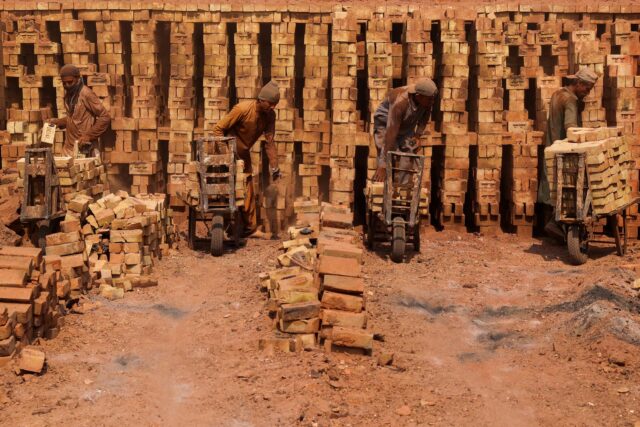Pakistan’s brick kiln industry continues to perpetuate bonded labour, systemic abuse, and gender-based violence, according to a report released by the National Commission for Human Rights (NCHR). The findings highlight a cycle of exploitation that affects entire families, drawing international concern over persistent human rights violations.
The report, focused on Punjab’s kilns, reveals that denial of fair wages, absence of contracts, unsafe living conditions, and lack of social security keep workers trapped in perpetual debt. Families are forced to live in hazardous environments, with unhygienic sanitation and no access to healthcare, resulting in chronic illnesses, reproductive health complications, and psychological trauma.
“Violence is not an exception but rather the dominant norm within the brick kiln sector,” the NCHR said, citing routine physical abuse, abduction, and torture as methods of intimidation used by kiln owners to maintain control.
The report highlights extensive gender-based violence, with women—particularly those from religious minorities and poor households—facing harassment, rape, and forced marriages. Kiln managers and owners exercise unchecked authority, while stigma and fear silence victims. “A culture of shame and absence of legal safeguards allow conditions of exploitation to persist,” it notes.
Children are also drawn into the cycle, deprived of education and forced to contribute to family labour from an early age. This ensures that poverty and bondage pass from one generation to the next.
The NCHR warned that Pakistan’s bonded labour system strips workers of their most basic rights and freedoms. By ensuring that debts are never truly cleared, kiln owners retain control over entire households, reducing them to units of labour in what the report describes as “inescapable” conditions.
Human rights groups have long flagged the plight of bonded labourers in South Asia as a regional crisis. Pakistan is a signatory to several international conventions banning forced labour, but weak enforcement and impunity for kiln owners continue to undermine reforms.
The NCHR findings add to growing international scrutiny of bonded labour practices. Rights organisations and UN bodies have repeatedly urged Islamabad to strengthen protections, enforce existing laws, and provide rehabilitation for victims, warning that failure to act will perpetuate intergenerational cycles of poverty and exploitation.
(This article was written by Tisya Sharma, she is an intern at StratNews Global)





